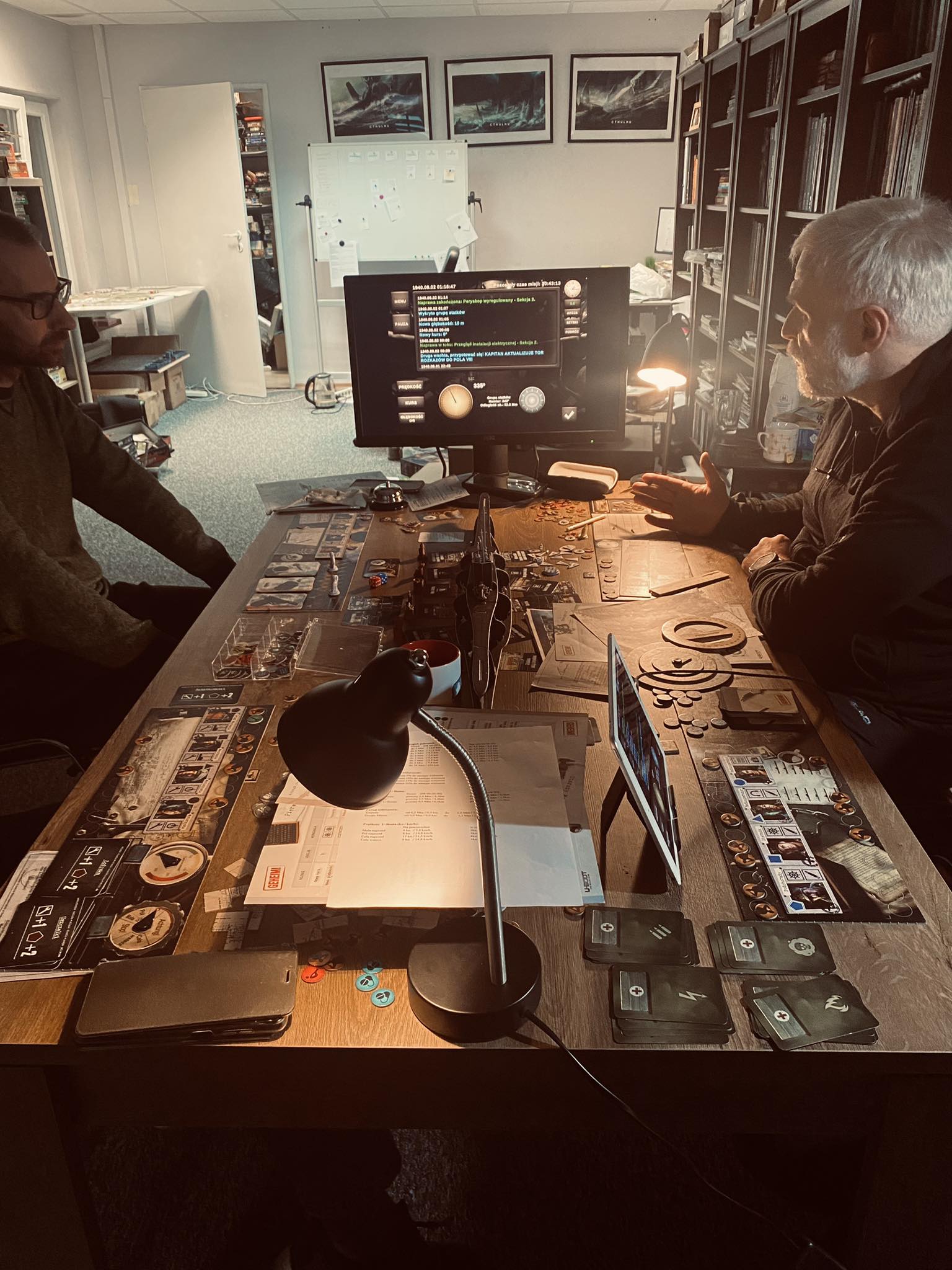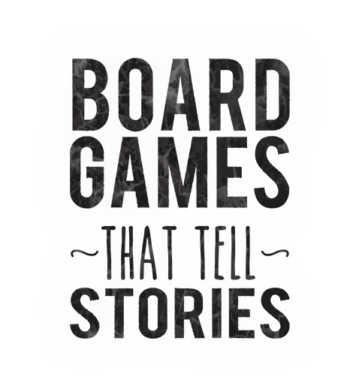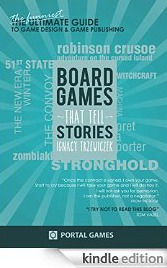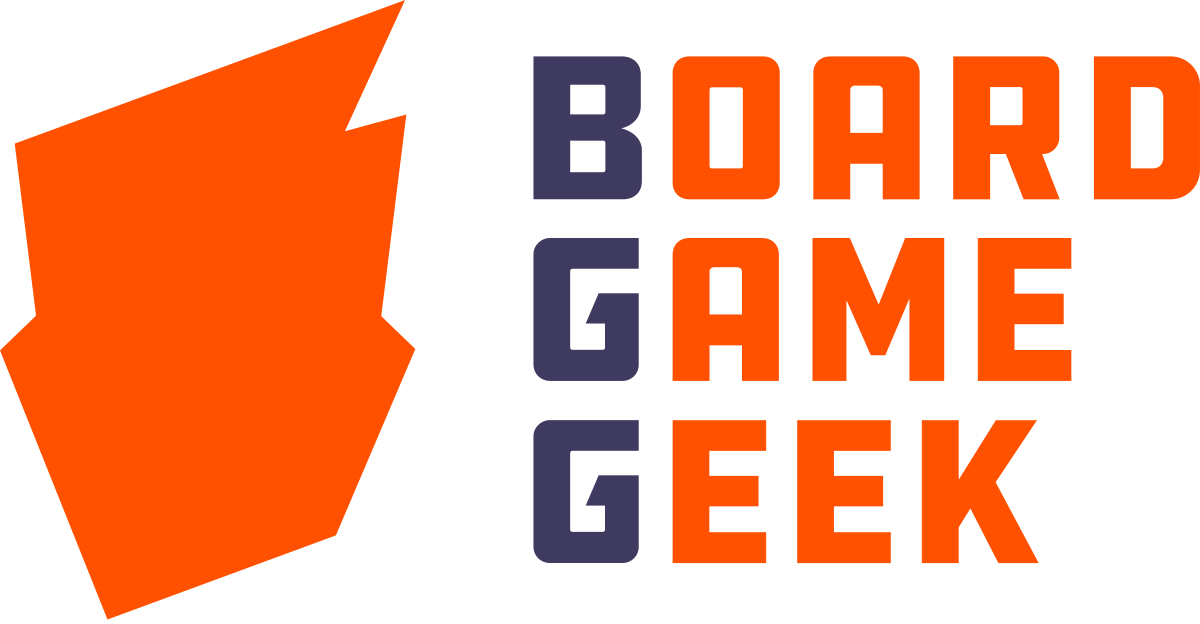Decisions on a Submarine

In the games I design, players have dozens of decisions to make. In the famous „51st State,” each card can be played in three ways. In „Robinson,” each action can be performed in two ways—safely or with risk. Even in my story-driven „Detective,” I crammed in as many choices as possible—there are 36 cards in the deck, but players will only read 18 of them. Which ones? That’s their choice.
I like choices in games. I like making decisions and, most importantly, I love that moment after the game ends when I look at my score and tell myself, „At that moment, I made the wrong decision. If I played again, I would play differently.”
This week, I played a game during which I hardly made any decisions.
***
„UBOOT” by Bartosz Pluta and Artur Salwarowski is a game where players take on the command of a submarine during World War II. Insanely well-published, it contains a gigantic 3D model of a ship, a dedicated app that manages our mission, and plethora of tokens, boards, rulers, protractors, and maps—one pulls out component after component from the box and wonders if they will ever end.
The game features four unique roles—Navigator, First Officer, Chief Mechanic, and Captain. Each has its own set of actions and activities.
At the beginning of the mission, the Navigator receives orders concerning our destination. So, after he charts a course, he can, in theory, go for a smoke. An entire pack of cigarettes, to be exact, because we’ll be following that course for the next several minutes of gameplay. In the briefing, the player receives information on where we must arrive, looks at the map, draws three lines, and gives the course to the First Officer, and that’s the extent of his play. For formality’s sake, he may ask the Commander every half hour for permission to surface and confirm the position, but he might as well drive to the local diner and bring back pizza for the rest of the players. Will this Navigator say after the game that he could have played differently? That he had a lot of decisions and that the seventh and eighth ones were wrong? Probably not—he’d probably just charted a course on the map and politely observed as our ship cut through the waves for the next few hours.
The First Officer is responsible for submitting the course, assisting with surfacing and diving, radio contact with the command, and treating the wounded. It looks beautiful on paper, but in practice, there are zero real decisions! If a report comes from Germany, if the app tells the player that there is a new message, then yes, of course, he will read it. He won’t decide not to. The same goes for charting the course—if the Navigator gives you a new course, you take it and enter it, you don’t debate, you don’t make any real decisions here. The same goes with changing the depth—if there’s an enemy on the horizon and the Captain orders you to dive, you won’t make any decisions here, you just click in the app that we are diving and that’s the end of your choices in the game. The First Officer is, brutally speaking, a secretary. He operates the game app—other players tell him what to enter, and he enters it. And that’s it. Zero decisions in the game.
So maybe the Captain has some decisions? This player issues orders, after all! What exact orders? Whatever his subordinates ask for. Captain, is there permission to dive? Confirmed, order to dive. Captain, is there permission to repair the diesel? Confirmed, order to repair the diesel. Captain, is there permission to use the sextant? Confirmed, please check our position with the sextant…
The Captain somehow feels that he is issuing orders, but in most cases, he is just a parrot that repeats what other players have said (but with more authority). And yes, I know there are 8 actions per watch, and there are watches in which you need to perform 9 or 10 actions, and it’s the Captain who will decide which of these actions will not be done. Those are the short awesome moments when he feels that the decision belongs to him, that he truly is commanding. Nonetheless, for most of the watch, the Captain’s role is purely ceremonial. Just repeat what another player said but with more confidence! Decisions in the game: a round zero. Maybe 0.5!
There’s also the Chief Mechanic, the boss of four engineers running around the deck with a wrench and screwdriver in hand. The Chief Mechanic constantly reacts to malfunctions thrown at us by the app. If the electrics go out, he fixes the electrics. If the stove breaks down, he fixes the stove. If there’s a problem with flooding the torpedoes, he fixes the torpedo flooding system. There are no long-term decisions here, you can’t repair better or worse, you can’t decide to repair quickly or seriously, and you can’t prepare anything for the next turns—his role is the simplest possible ping-pong with the app. The app says there’s a toilet malfunction, so you fix the toilet, the app says a light bulb burned out on the bridge, so you change the light bulb on the bridge…
Playing UBOOT is a game where four players react to events thrown by the app without much, or even any, possibility of maneuvering or making autonomous decisions. The Navigator charts the optimal course, the First inputs everything into the app, the Mechanic fixes whatever has just screwed up, and the Captain pretends to command by repeating—but with authority!—the declarations of other players.
A disastrously poor game, right? Well, ladies and gentlemen, absolutely not!
Both UBOOT sessions I played in the past weeks were insanely awesome evenings. It was time spent with friends that I will remember for years. Moments that have perhaps been etched in my memory forever. A decade from now, I will remember the moments when we entered a minefield and the ship was shaken by explosions, and the Navigator grabbed maps, and rulers, and screamed: „Where the hell are we?! It’s impossible, this sector was supposed to be safe!” Or those moments when enemy ships were searching for our position, and we whispered frantically at the table because that damn app was picking up sound from the microphone and if anyone spoke up at the table, we would be detected and get a torpedo in the bow. Those times when our Navigator argued with the First about the course of approach to the enemy transport ship, because they couldn’t agree on the enemy ship’s speed! Observing the coast of Ireland and assessing our position to save on the sextant action. The moment we sank the first enemy ship, the app gave us minus five thousand Victory Points because the orders were clear: we were not supposed to reveal ourselves!
UBOOT is a fascinating beast. Built almost entirely in opposition to the way I design games, it is clinical proof that there is not one school of game design and that there is not one best type or genre of games. It proves that one can design a game that mocks euro games and their famous choices and paths to victory, mocks ameritrash games and their plastic figures and character leveling, that it doesn’t give a damn about any rules and principles of designing strategic games, and that it can be an original, unique, and extraordinary hybrid of a war game and an RPG session. If I were to compare UBOOT to characters in RPG games, I’d say that the creators of UBOOT put all their points into Theme stat. And that was a damn good decision. UBOOT is one of the most thematic games I’ve played in my life. If you get the chance, please try it. No other game will offer you such an unusual experience. And what about the fact that there aren’t too many decisions? Well then, play chess for dessert.


 I strongly believe that good board game is the one that tells a good story. You play it and suddenly you are sucked into it, you feel chills on the skin. Emotions grow. In a moment you defend castle. You hear roar of warriors. You smell boiling oil. You are into it.
That's how I design my games. I always want to tell a good story. I want players to be into it. As deep as possible.
I strongly believe that good board game is the one that tells a good story. You play it and suddenly you are sucked into it, you feel chills on the skin. Emotions grow. In a moment you defend castle. You hear roar of warriors. You smell boiling oil. You are into it.
That's how I design my games. I always want to tell a good story. I want players to be into it. As deep as possible.




Leave a Comment